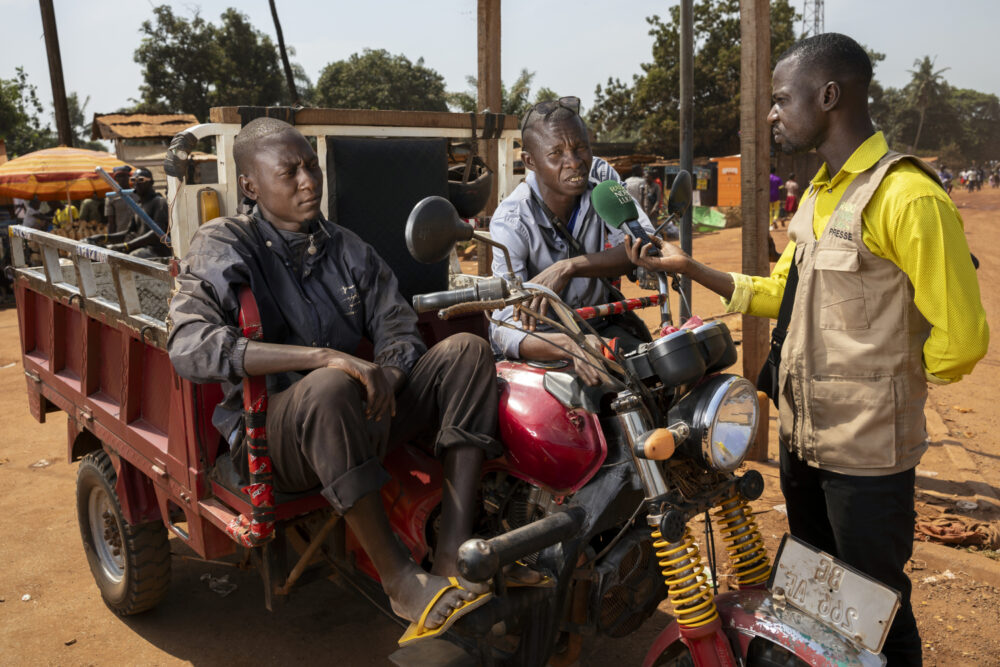For 29 years, Fondation Hirondelle’s mission has been to provide everyone, especially the most marginalised communities, with reliable, non-partisan information to help them understand their environment and make informed decisions. Expulsions of international journalists, threats and pressure against local journalists, media bans: the „black holes“ or „black spot“ of information are increasing around the world, limiting public access to independent and reliable information. Our mission remains more necessary than ever in these fragile contexts.
In 2023, Fondation Hirondelle listened to and informed more than ten million people every day in the Sahel, central Africa, Madagascar, Myanmar, Tunisia and Ukraine. Our priority in 2024 is to maintain our presence in these regions to enable as many people as possible to have access to factual, reliable and accessible information through our studios, media and partner media networks (more than 185 partner media in the Sahel, more than a hundred in central Africa). This involves both improving working conditions in these increasingly fragile contexts and strengthening professional skills through training.
To achieve this, we need to consolidate our current programmes, particularly financially: Studio Kalangou in Niger, Studio Tamani in Mali, Studio Yafa in Burkina Faso and Radio Ndeke Luka in the Central African Republic. We will be implementing our new projects in the Democratic Republic of Congo, focusing on complementary and innovative areas: monitoring online disinformation and strengthening local media to respond to it. We will continue to support our partners of Studio Sifaka in Madagascar, to keep young Madagascans informed. In south-east Asia, we will continue to support independent Burmese media in exile Frontier Myanmar to produce a weekly podcast on human rights. In Tunisia, we will support local media and journalists in six governorates, to encourage dialogue between the population and the authorities. In Ukraine, we will be continuing our support for the „hyper“ local news media, as close as possible to the victims of war and its effects.
In 2024, our Justice Info website will maintain multilingual journalistic coverage of ongoing international judicial processes, no longer confined to the context of war or genocide but also covering issues such as the responsibility of multinationals for climate change, reparation for colonial crimes and violations committed by extremist groups and religious institutions. We will also be developing co-productions between our media and partners, from one country to another, to cover issues of common interest, in particular the environment and the effects of climate change.
The other operational objective for Fondation Hirondelle in 2024 is to develop and implement new projects, particularly in certain West African coastal countries that are increasingly affected by the Sahelian crises: first Benin, where we started an initial Swiss Cooperation mandate at the end of 2023; Senegal; Côte d’Ivoire and perhaps other countries where we have the capacity to analyse contexts and share our expertise; and finally Chad, where we drew up an initial project concept in 2023, and where we will be carrying out a new mission in February to meet local media and civil society players as well as international partners. Beyond sub-Saharan Africa, we will remain attentive to the need for information in crisis and emergency situations, in contexts where we can make the most of our knowledge of information ecosystems – particularly in the Maghreb, the Middle East and south-east Asia regions.
Nicolas Boissez, Director of Operations

